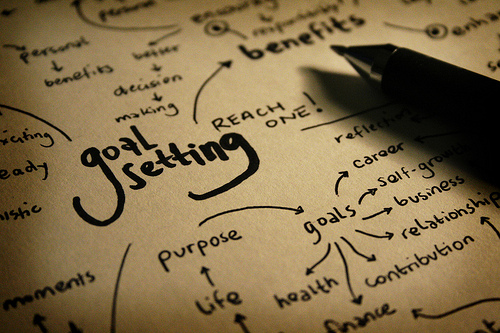 Summer passed so quickly that I did not even realized when. It was a time of intense academic work for me, but also of a greater slack – more sleep, meetings with family and friends, participation in cultural events. If you don’t work in the recreation and tourism industry or haven’t had a serious crisis at work, the last two months have probably been more restful for you in terms of your professional life. It’s good. Such time is needed to „recharge the batteries” and get some distance from what is happening at work.
Summer passed so quickly that I did not even realized when. It was a time of intense academic work for me, but also of a greater slack – more sleep, meetings with family and friends, participation in cultural events. If you don’t work in the recreation and tourism industry or haven’t had a serious crisis at work, the last two months have probably been more restful for you in terms of your professional life. It’s good. Such time is needed to „recharge the batteries” and get some distance from what is happening at work.
As long as the machine with projects and tasks has not yet started to work for good, it could be beneficial to use this moment to set your career goals for the next six months. Why is it so important? We are inherently oriented towards activities that are organized and focused on specific results. We can permanently engage in something only when it makes us happy, is important to us and we see some meaning in it. If we do not have well thought out goals and undertake tasks that simply appear, sooner or later we will lose the motivation to do them. Together with the joy of work in general.
Three years ago I wrote about Sonia Lubomirsky’s idea that to increase one’s own level of happiness, a person should set and implement goals that are intrinsic, authentic, approach-orientated, harmonious activity-based and flexible [post “Committed goals pursuit” from 21.7.2015]. Today I would like to briefly describe the types of professional goals mentioned by Sarah Lewis, which can contribute to our greater efficiency at work.
- Approach goals are those that are associated with achieving the desired result. In reverse to avoidance goals, which are about avoiding something unpleasant for us (e.g. reprimand from the boss or dismissal from work) approach goals are associated with higher levels of striving aspirations and well-being as well as with greater performance.
- Self-concordant goals are those congruent with a person developing interests and core values. They arouse the sense of ownership of the goals achieved. As a result, the person tries to work harder for longer and feels more satisfaction if he or she succeeds.
- Mastery goals are those focused on increasing a person skills in a given area. They concern improvement in a specific, limited issue. By achieving this type of goals, our sense of self-efficacy increases, which in returns motivates us to set new mastery goals.
Once you know it, try to find a moment off, when no one and nothing will disturb you, take a piece of paper and write down what you would like to achieve in the next 6 months in your professional life, in particular:
– what specific you would like to obtain (e.g. promotion to the team leader)
– achieving of what would be an important step in your professional development (e.g. getting a coaching qualification in relation to the value you attribute to helping others in their development)
– what important skills you would like to improve (e.g. better diction in relation to frequent public speeches).
Having goals that are specific, related to your interests, values and key skills should increase the probability of you achieving them.
And if you are a manager and have a responsibility (due to the rules prevailing at organization) or tendencies to set goals for your subordinates, remember that it makes no sense if these goals are contrary to what they are striving for. It is much better to talk to each of them first to find a common denominator for their own goals and the interests of the organization.
Source: Lewis, S. (2011). Positive Psychology at Work: How positive leadership and appreciative inquiry create inspiring organizations. Oxford, UK: Wiley-Blachwell
Grafic credit: https://proyectoscomplejos.com/2014/01/31/gestion-de-proyectos-complejos-los-objectivos/

0 Comments